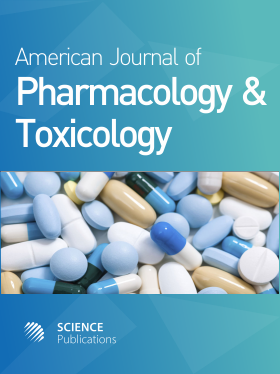Assessment of the Mutagenicity of Some Pharmaceutical Effluents
- 1 University of Lagos, Nigeria
Abstract
Problem statement: The pharmaceutical industry is a major contributor to industrial wastes globally. Effluents from this industry are usually discharged into the environment and when not properly handled and disposed, they affect both human health and the environment. Approach: This study evaluated the mutagenic potentials of effluents from six pharmaceutical companies in the Lagos province of Nigeria using modified Ames test and Allium cepa (Linn) assay. Allium cepa model was used to determine the mean root length, mitotic index and chromosomal aberrations effects of these plants on Onion bulbs using 5, 10 and 15% concentration of the pharmaceutical effluents. The modified Ames test which is a modification of the standard Ames test was done using E. coli (0157:H7) that has the phenotypic characteristics of glucose and lactose fermentation, motile, urease negative, indole positive and citrate negative. Result: From the results, two of the effluents showed mutagenicity with modified Ames test and all the six effluents showed mitodepressive and toxic effects to the Allium cepa root. Conclusion/Recommendations: It may then be recommended that pharmaceutical companies should devise means of containing, treating and managing their effluents.
DOI: https://doi.org/10.3844/ajptsp.2009.144.150

- 6,172 Views
- 5,321 Downloads
- 11 Citations
Download
Keywords
- Pharmaceutical effluent
- Ames test
- Allium cepa assay
- mutagenicity
